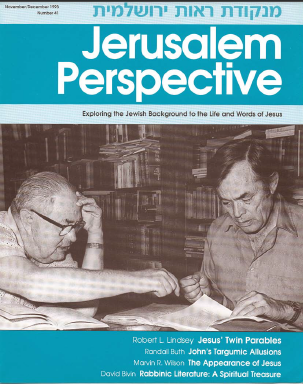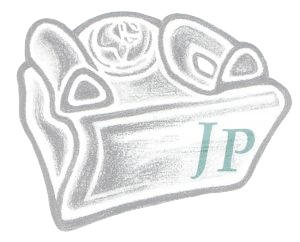Revised: 15 October 12
This article is one of a six-part series entitled “Rabbinic Parallels.”
The sages were the creators of the Oral Torah, תּוֹרָה שֶׁבְּעַל פֶּה. (torah she-be-al peh) This literature, still unwritten in Jesus’ day, is of great value for Christians like me in understanding Jesus’ sayings. It is also a rich treasure of spiritual wisdom.
“Rabbinic literature” refers to the various collections of Oral Torah. As the name implies, the Oral Torah was transmitted orally and, in the time of Jesus, was still unwritten. It was only after Jewish life in the land of Israel had been nearly extinguished that the weakened Jewish community felt the necessity of recording this literature in writing.
The first attempt to commit the Oral Torah to writing resulted in the Mishnah. This work was compiled by Rabbi Yehudah ha-Nasi around 200 A.D.[1] The Mishnah records the sayings of sages who lived and taught during the previous several hundred years and, except for isolated words or sentences, it is written entirely in Hebrew.
Sayings of the Fathers
The best-known of the Mishnah’s sixty-three tractates is titled אָבוֹת (Avot, Fathers) or פִּרְקֵי אָבוֹת (Pirke Avot, Chapters of the Fathers), but often referred to in English as the “Sayings of the Fathers” or “Ethics of the Fathers.”[2] Avot is a collection of the cherished sayings of more than sixty illustrious sages, beginning with sayings of the earliest known sages (third century B.C.). According to Avot, there had been an unbroken chain of transmitters of Oral Torah since Moses’ time. In its first chapter, Avot traces the Oral Torah’s transmission from its reception at Mount Sinai until the days of Hillel (end of first century B.C.):
Moses received the [Oral] Torah at Sinai and handed it down to Joshua, Joshua to the elders, the elders to the Prophets, and the Prophets to the men of the Great Synagogue…Shim’on the Righteous [ca. 300 B.C.] was one of the survivors of the Great Synagogue…Antigonus of Socho received [the Oral Torah] from Shim’on the Righteous…Yose ben Yoezer of Tseredah and Yose ben Yohanan of Jerusalem received [the Oral Torah] from him…Yehoshua ben Perahyah and Mattai of Arbel[3] received [the Oral Torah] from them…Yehudah ben Tabbai and Shim’on ben Shetah received [the Oral Torah] from them…Shemayah and Avtalyon received [the Oral Torah] from them…Hillel and Shammai received [the Oral Torah] from them….
Paid Content
Premium Members and Friends of JP must be logged in to access this content: Login
If you do not have a paid subscription, please consider registering as a Premium Member starting at $10/month (paid monthly) or only $5/month (paid annually): Register
One Time Purchase Rather Than Membership
Rather than purchasing a membership subscription, you may purchase access to this single page for $1.99 USD. To purchase access we strongly encourage users to first register for a free account with JP (Register), which will make the process of accessing your purchase much simpler. Once you have registered you may login and purchase access to this page at this link:
To read the next article in the Rabbinic Parallels series, click here.

- [1] See Herbert Danby’s The Mishnah (London: Oxford University Press, 1933), 876 pages. Philip Blackman’s seven-volume Mishnayoth (New York: The Judaica Press, 1964), 4,050 pages, a commentary on the Mishnah, includes the Hebrew text of the Mishnah with English translation. The standard edition of the Mishnah text in Hebrew is Hanoch Albeck’s six-volume Shishah Sidre Mishnah [The Six Orders of the Mishnah] (Jerusalem: Bialik Institute and Tel Aviv: Dvir Co., 1957-1959). ↩
- [2] Helpful translations of Avot with commentary are: Travers Herford, Pirke Aboth, The Ethics of the Talmud: Sayings of the Fathers (3rd ed.; 1925; reprinted New York: Schocken Press, 1962); Philip Blackman, Tractate Avoth: Ethics of the Fathers (Gateshead, U.K.: Judaica Press, 1979); Samson Raphael Hirsch, Chapters of the Fathers (2nd ed.; New York: Philipp Feldheim, Inc., 1979). A more extensive commentary on Avot is Charles Taylor’s two-volume Sayings of the Fathers (1877; reprinted New York: Gordon Press, 1969). ↩
- [3] Printed editions of the Mishnah, such as Albeck’s Shishah Sidre Mishnah, preserve the corruption, “Nittai.” However, the best manuscripts of the Mishnah (Kaufmann, Cambridge, Parma and the Genizah fragments) read “Mattai” (“Matthew,” in English). It is fascinating that a century and a half before the time of Jesus and his disciples we come across a Galilean sage whose name was Mattai. The village of Arbel was only about eleven kilometers from Capernaum where, according to the Gospel of Matthew, the disciple Matthew had his tax collector’s booth. ↩





























































